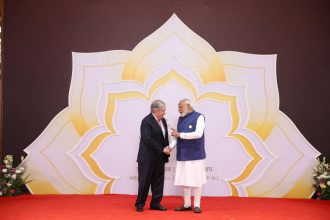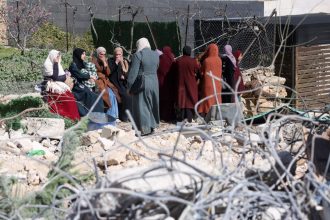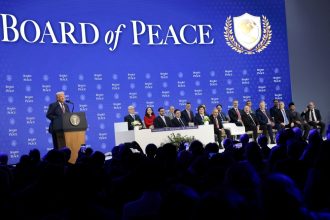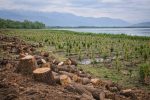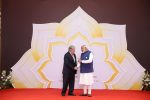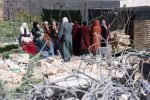Iraq will head to the polls on November 11 for parliamentary elections — a moment that analysts say could reshape the country’s political future as Iran seeks to preserve its long-standing influence and the United States quietly pushes back.
For years, Iraq has balanced a fragile line between Tehran and Washington. But today, the stakes feel different. Iran, once a dominant regional actor, has seen its power challenged in the wake of the Gaza war, significant battlefield losses by its regional allies, and unprecedented strikes on its soil. With its regional leverage weakened, Tehran is looking to secure the space where it has long held sway: Iraq.
Iran’s political muscle in Baghdad rests heavily on Shiite parties and allied armed groups who have shaped Iraq’s leadership landscape — including the rise of current Prime Minister Mohammed Shia al-Sudani. But with shifting dynamics across the Middle East, analysts suggest Iran may not command the same authority it once did. As one expert put it: Iran is not in the position to impose its conditions anymore — but it will still try to maintain influence.
Meanwhile, the United States appears determined not to step back. American sanctions target Iraqis linked to Iran’s financial networks, and US strategic contracts in key sectors like oil and technology signal continued interest. Washington’s message is direct: Iraq must remain sovereign, stable, and free from unchecked militia power. With 2,500 US troops still in the country, America’s military and political presence remains firmly anchored.
Yet the biggest story may not be foreign influence — but the mood on the streets. Many Iraqis are losing faith. Voting numbers have fallen across recent elections. Protesters demanding reform in past years saw violence and slow political change. This time, a major force — the movement of influential cleric Moqtada Sadr — is sitting the election out, calling the process flawed and urging supporters to stay home. For many citizens, elections feel more symbolic than transformative.
Still, the vote matters deeply. More than 21 million Iraqis are eligible to choose 329 representatives who will shape the selection of the next president and prime minister. Nearly 8,000 candidates — one-third of them women thanks to a quota system — reflect a nation that, despite hardship and mistrust, continues to seek democratic pathways.
This election will echo far beyond the ballot box. It is a referendum on foreign interference, a test of Iraq’s democratic resilience, and a chance — however slim — for citizens to reclaim hope in their political system.
In the end, Iraq’s story isn’t just about geopolitics or power struggles. It’s about people — millions of ordinary men and women who want stability, dignity, and a future their children can believe in. The world will watch; but for Iraqis, this moment is deeply personal.



